8 Best Herbal Medicine Books (Chinese, Ayurveda, Native American, African)
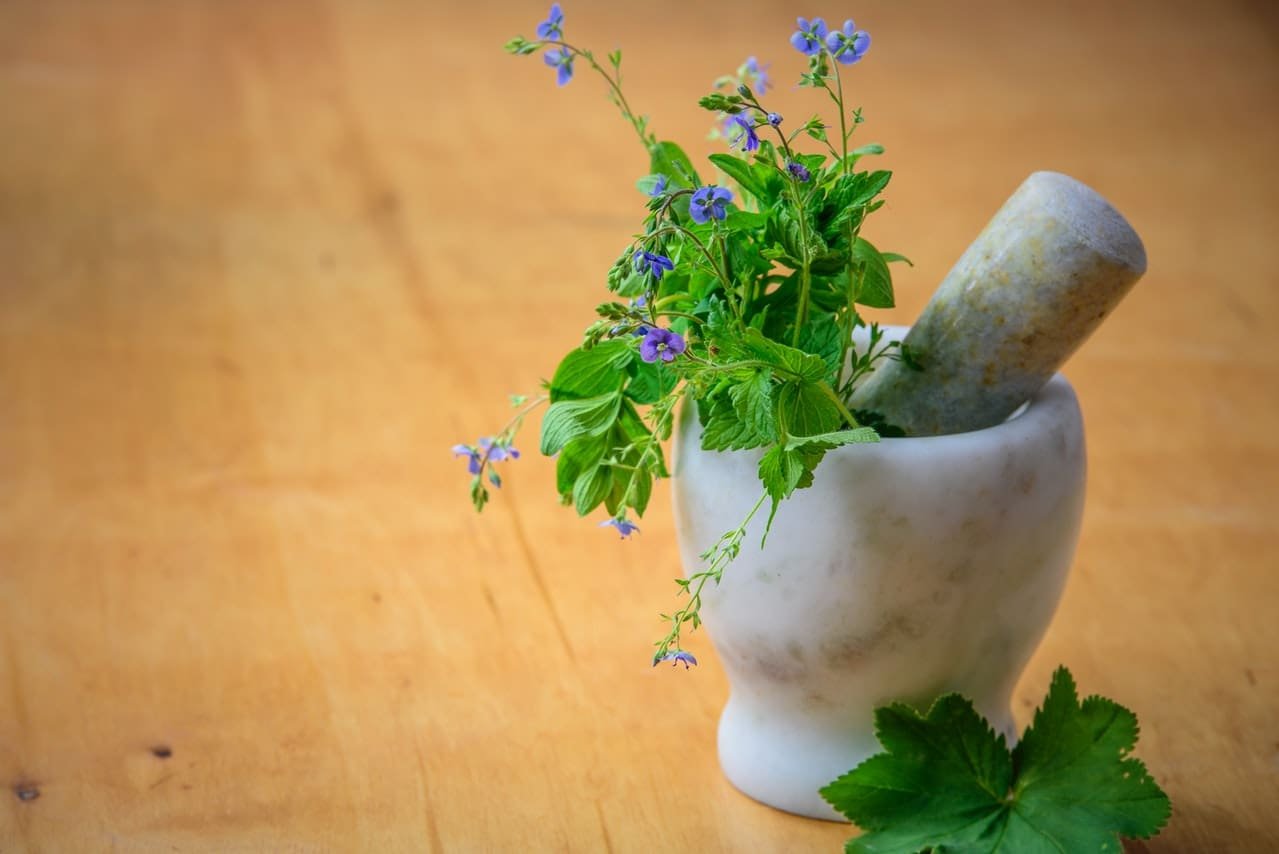
Herbal medicine is one of the oldest and most practiced forms of medicine in the world. It has been used for centuries to treat a variety of medical conditions.
And while Western medicine continues to advance, more and more people are turning to herbal remedies as a way to treat everything from the common cold to cancer.
Herbal medicine, with its roots in ancient cultures like Chinese, Ayurveda, Native American, and African, is a powerful force that threatens the establishment and the control of the ruling elite. It’s no coincidence that these therapies have been marginalized and dismissed by Western medicine.
The truth is, herbal medicine has the power to heal not just the body, but also the spirit. It’s a direct challenge to the pharmaceutical industry, which wants to keep us dependent on chemical cocktails that only treat symptoms and not the root cause of illness.
That’s why I’ve compiled this list of the 8 best herbal medicine books for you to explore. These books will arm you with the knowledge and tools you need to take back control of your health and well-being.
Here are the 8 best herbal medicine books to get you started:
There are literally thousands for herbs across the world and depending on the continent, native populations have mastered their native grown herbs. In our list of best herbal medicine books we recommend books from different alternative medicine schools like the Chinese, Ayurveda, Ancient Greece, Native American and even from the African Continent. If you are looking for a diverse selection of best herbal medicine books – we’ve got you covered.
Best Herbal Medicine Books
1. Encyclopedia of Herbal Medicine
Best Herbal Medicine Book Overall
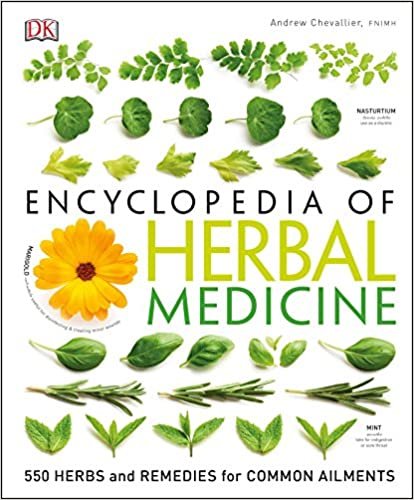
The Encyclopedia of Herbal Medicine is the perfect guide for anyone interested in herbs and their many uses.
This comprehensive 335 pages book features tips and tricks on planting and propagating a diverse range of herbs, as well as information on traditional and current uses for each herb.
With stunning photography to complement the broad variety of herbs featured throughout, this one-stop herbal handbook has it all and will leave you with a wellbeing garden to be proud of.
It is probably the most popular herbal medicine book on amazon with 10.000+ reviews, and it is the best choice for beginners.
2. The Modern Herbal Dispensatory: A Medicine-Making Guide
Best Herbal Medicine Book For Home Remedies
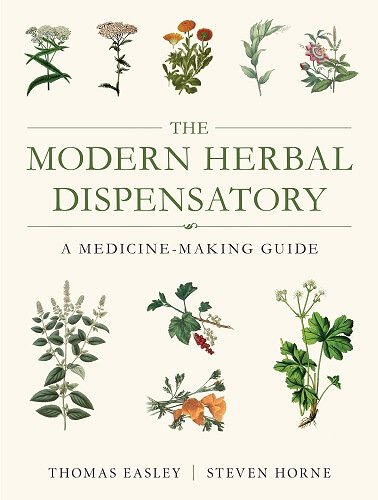
Looking to make your own herbal medicines at home? The Modern Herbal Dispensatory is the perfect guide for you!
This full-color book includes 250 herbal medicines that you can make in the comfort of your own home.
Written by leading herbalists Thomas Easley and Steven Horne, this guide is a must-have for anyone interested in natural health and healing.
With clear instructions and plenty of photos, you’ll be an expert medicine-maker in no time!
The book features a whopping 6535 reviews on Amazon (at the time of writing this article) with a total score of 4.8/5 – one of the highest among our selection – making it one of the best herbal medicine books on Amazon.
3. The Lost Book of Herbal Remedies
Best Native American Herbal Medicine Book

Learn about the powerful natural remedies used by Native Americans for centuries with The Lost Book of Herbal Remedies (review).
This 300+ page book, written by Dr. Nicole Apelian – a herbalist with over 20 years studying herbs and plants – and Claude Davis – a survivalist, features 181 healing plants, mushrooms, shrubs, and lichens in North America.
Each plant includes information on its traditional use, medicinal properties, and how to prepare it.
More than 550 natural remedies are included, making it easy to find a plant that can help with your specific ailment. With clear instructions and stunning photographs,
The Lost Book of Herbal Remedies is the perfect book for anyone interested in learning about herbal medicine native Americans used ages ago. It is one of the best herbal medicine books (if not the best) with a focus on Native Americans.
4. Chinese Herbal Medicine: Materia Medica (Portable 3rd Edition)
Best Book on Chinese Herbal Medicine
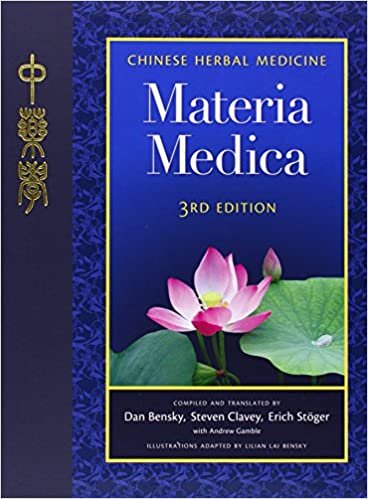
If you’re looking for a comprehensive guide to Chinese Herbal Medicine, this is the ONLY book you need.
Materia Medica is packed with information and insight into more than 530 of the most commonly used herbs in Traditional Chinese Medicine.
With clear, color photographs to help identify each herb, this book makes it easy to find the right one for your needs.
And with practical tips on dosage and preparation, you’ll be able to get the most out of your herbal remedies.
Whether you’re a beginner or an expert, Materia Medica is an essential reference for anyone interested in Chinese Herbal Medicine and most probably one of the best herbal medicine books that exist in the market nowadays.
5. The Complete Book of Ayurvedic Home Remedies
Best Book for Ayurvedic Medicine
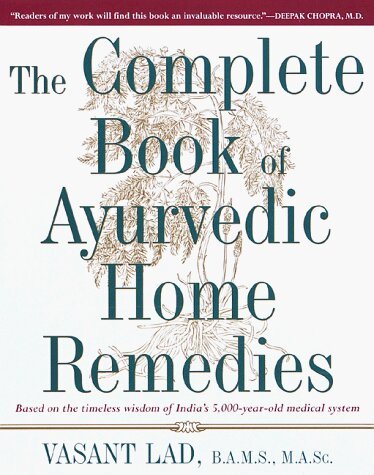
The Complete Book of Ayurvedic Home Remedies offers safe, effective solutions based on Ayurveda – the ancient healing tradition of India.
Written by Dr. Vasant Lad – a leading authority in this field – this book explains the principles behind the science of Ayurveda and shows how to treat common conditions with traditional remedies.
You’ll learn which Ayurvedic remedies offer relief from a variety of conditions, such as flu, headaches, toothaches, high cholesterol, vision problems, depression, anxiety, and stress.
With more than 1,667 ratings on Amazon, The Complete Book of Ayurvedic Home Remedies is one of the best herbal medicine books you can lay your hands on.
6. The Lost Ways (2nd Edition)
Best Herbal Medicine Book For Survivalists (Read Full Review)
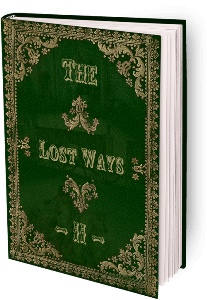
This is not just a book of herbal remedies, it is a book of lost skills. In our fast-paced world, we have lost touch with many of the simple techniques our ancestors used to survive.
The Lost Ways Book is a collection of these skills, passed down through the generations.
From mastering the art of wild plant identification, to learning how to build a shelter from scratch, this book is packed with information that could one day save your life.
And with more than 300 pages and hundreds of color photographs, this is a must have book for any herbalist/survivalist out there.
The Lost Ways Book is your ticket to rediscovering the lost skills of our ancestors and one of the best herbal medicine books with a more survivalist edge.
7. Handbook of African Medicinal Plants (2nd Edition)
Best African Herbal Medicine Book
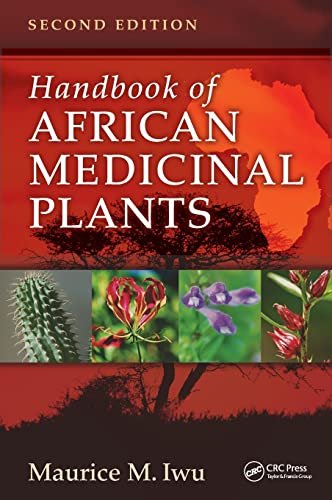
Looking for a comprehensive review of African medicinal plants? Look no further than the Handbook of African Medicinal Plants, 2nd Edition.
This 508-page book contains detailed information on more than 2,000 species of plants used in indigenous African medicine – is one of the best herbal medicine books that revolve around the indigenous Africans.
The first part of the book contains a catalog of the plants used as ingredients in traditional remedies, followed by a pharmaco-gnostical profile of 170 of the major herbs.
The second part of the book provides an introduction to African traditional medicine, discussing its history, philosophy, and practices.
Whether you’re a student of herbal medicine or simply interested in learning more about the medicinal plants of Africa, this is one of the best herbal medicine books focused on African medicinal plants.
8. Herbal Medicine for Beginners: The Secret of Herbal Medicine and the Power to Heal You
Best Herbal Medicine Book For Beginners
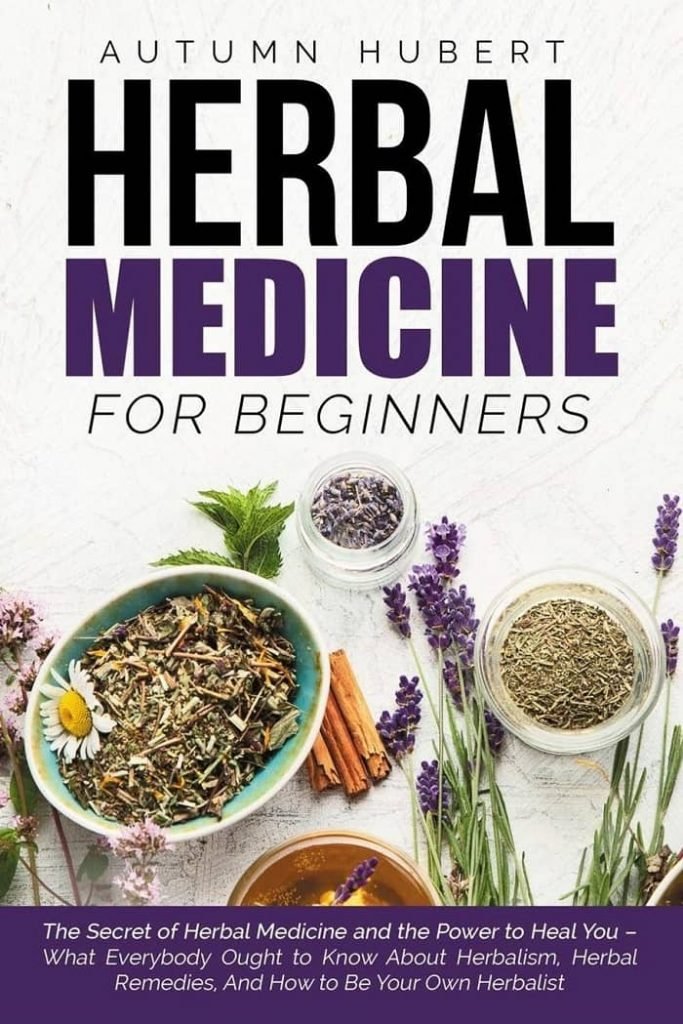
If you are categorizing yourself as a newbie in the herbal medicine field and want to know how to grow, harvest, and store your own herbs then this is one of the best herbal medicine books for you!
Herbal Medicine for Beginners is a quick step-by-step guide that will teach you everything you need to know about crafting your own herbal remedies.
You’ll learn about the tools, equipment, and ingredients needed to get started, as well as essential dosage recommendations for people of all ages.
Best of all, this book comes with easy-to-follow instructions that will make creating your own herbal medicine a breeze!
Bonus: Medicinal Garden Kit
Best Book On Growing Your Own Medicinal Herbs

Medicinal Garden Kit (review) by Dr. Nicole Apelian (yes, the same person who wrote the above-mentioned book – The Lost Book of Herbal Remedies) offers a comprehensive solution for individuals looking to cultivate their own medicinal garden.
This kit includes a variety of seeds and detailed guides to assist users in starting and maintaining their herbal garden effectively.
The main benefits of the Medicinal Garden Kit lie in its curated selection of medicinal plant seeds, which allows users to grow a diverse range of herbs with therapeutic properties.
The accompanying guides provide valuable information on planting, caring for, and utilizing these plants for various health purposes.
The Medicinal Garden Kit empowers users to harness the healing properties of plants firsthand, promoting self-sufficiency and a deeper connection to nature.
Overall, the Medicinal Garden Kit by Dr. Nicole Apelian is a practical and educational resource for those interested in herbal medicine and sustainable living.
Exploring Ancient Healing Traditions
In this section lets dive into some of the world’s most renowned traditional healing systems, including Ayurveda, Chinese Medicine, African Medicine, Native American Medicine, and Ancient Greek Medicine.
Ayurveda
Ayurveda is like an ancient guidebook from India on how to live a healthy life. It’s been around for thousands of years and focuses on keeping your body, mind, and spirit in harmony.
The main idea here is that everyone has their own specific body type or “dosha,” and knowing yours helps you understand what foods, exercises, and herbs are best for you.
Ayurveda uses a lot of different plants to help keep your dosha balanced so you can stay healthy. It’s not just about treating sickness; it’s more about preventing problems before they start by living in a way that’s best for your unique body.
Chinese Medicine
Chinese medicine is another ancient system that believes our health depends on the balance and flow of energy in our bodies.
This tradition uses herbs, acupuncture, and other methods to help fix imbalances and get the energy moving correctly again.
The cool thing about Chinese medicine is how it looks at the whole picture – not just the symptoms but why they’re happening.
Herbs play a big role in this by helping to restore balance inside, based on what each person specifically needs.
African Medicine
African medicine is deeply rooted in nature and community traditions across the continent. It involves using local plants for healing along with spiritual practices sometimes.
What makes African medicine special is its close connection to the environment and understanding that health involves both physical well-being and social harmony within the community.
Healers often use their knowledge of local plants to create remedies tailored to individual needs while also considering their overall place within society.
Native American Medicine
Native American medicine combines herbs with spiritual practices believing that health comes from balancing one’s relationship with nature, others, oneself, and the spiritual world.
Different tribes have their unique practices but share common beliefs in using natural resources respectfully to heal illnesses.
This holistic approach means treatments might involve ceremonies or rituals alongside herbal remedies emphasizing healing not just physically but emotionally and spiritually too.
Ancient Greek Medicine
Ancient Greek medicine laid down some early principles of diagnosing diseases scientifically instead of attributing them solely to supernatural causes as was common back then.
Thinkers like Hippocrates believed maintaining balance among bodily fluids was key to good health which could be achieved through diet, exercise, restful sleep – pretty modern concepts!
They used various plants as medicines understanding that different ailments required different treatments highlighting an early move towards personalized healthcare based on observation and study.
Why don’t doctors recommend herbal medicine?
There are a few reasons why doctors may not recommend herbal medicine.
- Pharmaceutical Industry Influence: The pharmaceutical industry has a strong hold on the medical establishment. They fund research, sponsor medical education, and lobby heavily to maintain their dominance. Herbal medicine, being a natural alternative, threatens their profits and influence.
- Lack of Standardization: Herbal medicine lacks the rigorous standardization and regulation that pharmaceutical drugs undergo. This makes it difficult for doctors to recommend them, as there is no guarantee of their safety, efficacy, or consistency.
- Lack of Scientific Evidence: Many herbal remedies have been used for centuries, but modern scientific studies have not yet confirmed their efficacy. Without this evidence, doctors are hesitant to recommend them as they may not be effective or may have unknown side effects.
- Insurance Coverage: Most herbal remedies are not covered by insurance, making them a less accessible option for patients. Doctors may be hesitant to recommend treatments that are not covered by insurance, as it may put a financial burden on the patient.
- Medical Education: Medical schools typically focus on pharmaceutical drugs, with little to no emphasis on herbal medicine. This means that many doctors may not have the knowledge or training to recommend herbal remedies, even if they believe in their potential benefits.
- Regulatory Barriers: Herbal medicine is not regulated in the same way as pharmaceutical drugs, which can make it difficult for doctors to recommend them. Without clear guidelines on dosage, preparation, and potential side effects, doctors may be hesitant to recommend herbal remedies to their patients.
- Fear of Liability: Doctors may be hesitant to recommend herbal remedies due to the potential for legal liability. If a patient has an adverse reaction to a recommended herbal remedy, the doctor could be held responsible, even if the patient obtained the herb from another source.
- Lack of Communication: Herbal medicine is often not discussed in traditional medical settings, making it difficult for doctors to recommend it. Patients may need to seek out alternative healthcare practitioners or do their own research to learn about herbal remedies.
- Cultural Bias: Western medicine has a strong cultural bias towards pharmaceutical drugs, and doctors may not be aware of the benefits of herbal medicine. This cultural bias can make it difficult for doctors to recommend herbal remedies, even if they believe in their potential benefits.
- Lack of Training: Many doctors receive little to no training in herbal medicine during medical school or residency. This lack of training can make it difficult for doctors to recommend herbal remedies, even if they believe in their potential benefits.
Final Take
If you are looking for a comprehensive guide to herbal medicine, one of the books we featured in this blog post would be a great place to start.
All of the books we recommended were written by experts in the field, so you can trust their advice.
Whether you are just starting out on your herbal journey or you are an experienced practitioner, there is something for everyone here.
Have you read any of these books? What did you think? Let us know in the comments below.
Check these articles as well:
